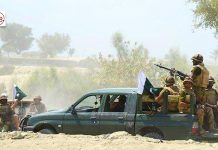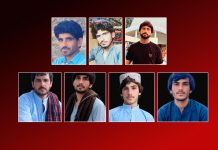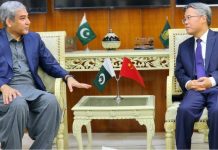Author: Hakeem Wadhela
On September 30th, after the Friday prayers, hundreds of protesters took to the streets of Zahedan, Balochistan. The protesters were demanding action against a Police officer Ibrahim Kuchekzai, who has been accused of raping a fifteen-year-old Baloch girl in the port city of Chabahar, Western Balochistan.
The protesters were demanding justice for the rape victim and action against the accused police officer. In response to these protesters Iranian forces used forceful tactics to disperse the protesters, which resulted in violent riots.
As a result of Police brutality over fifty protesters were killed and hundreds of others were wounded. Angry protesters took the streets and burnt down several government installations
During the clashes between protesters and Iranian forces, Senior Islamic Revolutionary Guards officials Ali Mousavi, Syed Hameed Raza Hashimi, Mohammad Ameen Azashkar and senior police officer Mohammad Arifi were also killed.
Activists belonging to Western Balochistan have shared videos and details of killed protesters and the riots, which defies the claim of Iranian State forces stating that the situation is under control and the riots have been resolved.
In contrast to the official claims of the situation being under control, the bloody riots and protests continued for the second consecutive day, and it has also reached other cities of Western Balochistan, including Iranshahr. Many police stations and official buildings have been burnt down by the angry protesters.
People of Sistan and Balochistan have largely been deprived of the basic rights and they have been facing persecution because of their religious sect. Such protests and violent riots have also taken place in the past, but they did not last for a long time.
The anger of common people can be seen in these protest that they are not willing to give up on their rights or their land and freedoms, but what is missing here is a strong political voice or a leadership who could shape these riots into a movement and could lead these protesters to a direction that could resulted into a stronger and better outcome.
Protest, demonstration and resistance are part of a political process, but sudden uprising without a political force or a leadership always lead to nowhere.
Currently the Baloch and the other ethnic groups are fighting the Islamic regime, which considers Sunnis as the enemy of the Iranian state and keeping them deprived is considered a right of the government. The opposition to this regime is mostly religiously charged Sunni militants or religious activists.
A third party that could play the actual leadership role in the current political scenario of Western Balochistan, can be the secular political voices of Baloch activists from Sistan and Balochistan.
They have the approach and are directly connected to the masses. They are the ones who can turn this public anger into a mass movement against the brutalities of the regime. This may actually be the beginning of a real political uprising in the region and people will finally be able to speak up and rise against these brutalities and be able to fight for their rights and freedom.
Disclaimer: The views and opinions expressed in this article are those of the author and do not necessarily reflect the official policy or position of The Balochistan Post or any of its editors.






























